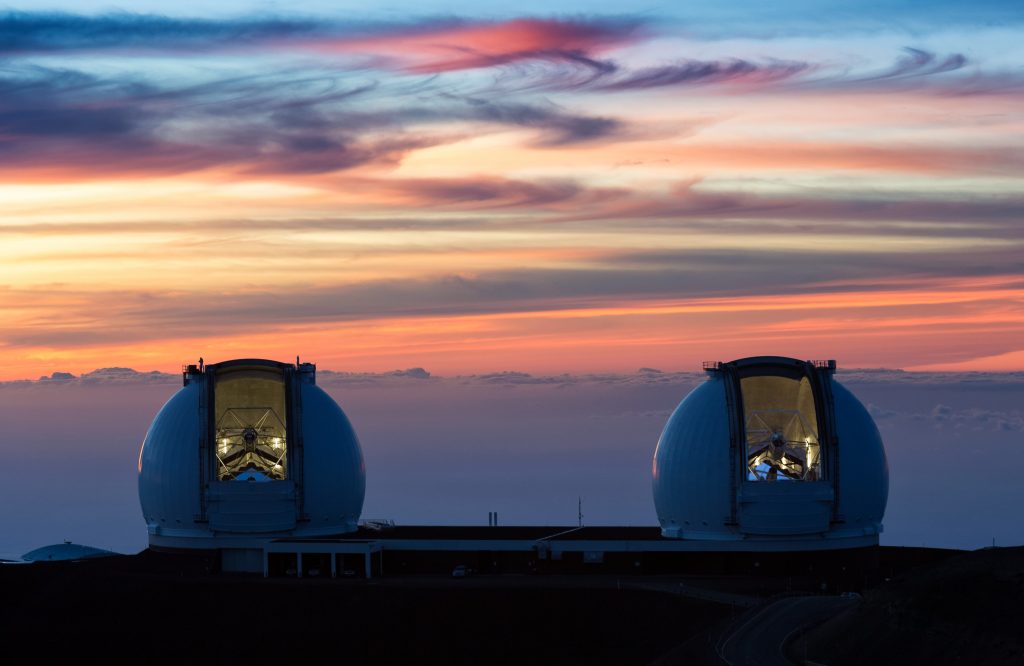TESS is an exoplanet-hunting satellite that is surveying the entire sky for exoplanets transiting the nearest and brightest stars. These planets will provide a wealth of insight into the origin and composition of planets in the Galaxy, and serve as the target list for near-future observatories designed to characterize exoplanet atmospheres such as the James Webb Space Telescope and the Thirty Meter Telescope.

The twin 10-meter Keck Telescopes. Image credit: Keck Observatory
The planets discovered by TESS will only be of significant scientific value if we can measure their masses with the Doppler method and thereby estimate their densities. To that end, I am a co-PI of the TESS-Keck Survey, or TKS. TKS is a collaboration of exoplanet scientists across the Keck partner institutions (University of California, Caltech, University of Hawaii) to conduct ground-based followup observations of TESS exoplanets using the Keck I and Automated Planet Finder (APF) telescopes. We have been awarded some of the largest time allocations in the histories of these observatories for TKS.
Students in my research group are currently leading or contributing to efforts to vet potential TKS targets, conduct Keck observations, and analyze TKS data.